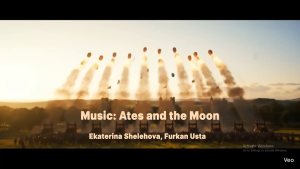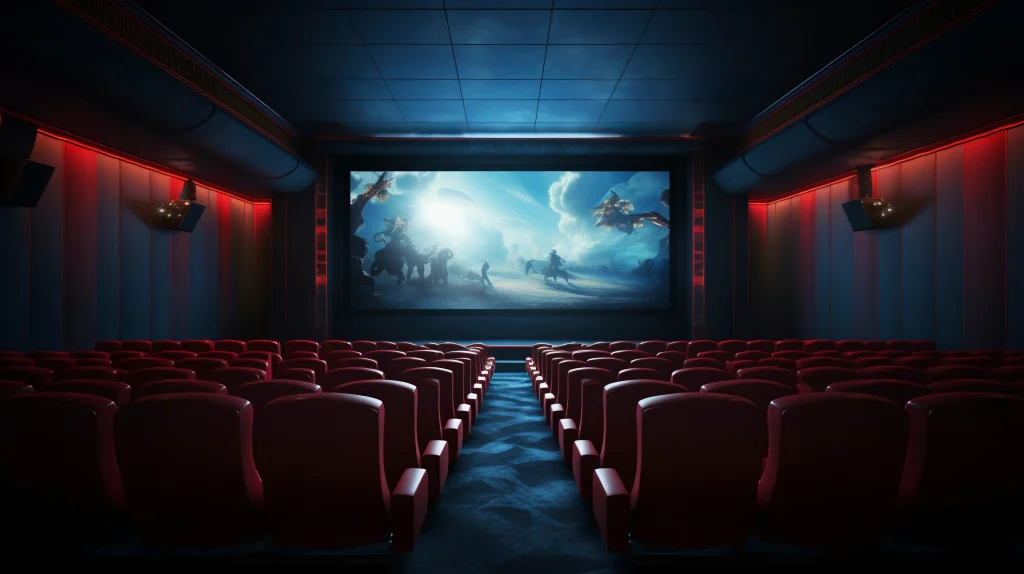My AI Storytelling Movie – Watch Here…
The Spark
I’ve always been drawn to medieval epics — the kind of stories that drench you in castles, crowns, and chaos. Think Game of Thrones or House of the Dragon: the scale, the stakes, the haunting quiet before the storm.
What always fascinated me wasn’t just the war itself, but the night before it. You know the saying, “the anticipation of death is worse than death itself”? That’s cinematic gold. One of the most haunting examples for me was before the humans fought the White Walkers in Game of Thrones. The night was filled with fear, despair, and that unforgettable moment when they sang Jenny of Oldstones (yes, Florence + The Machine nailed that).
That scene gave me the spark: What if I could capture that same raw, heavy anticipation in my own story?
The problem? I’m a 2D animator and 3D environmental designer — but creating a full cinematic piece solo takes time. A lot of time. I wanted to bring the vision in my head to life, but faster. That’s when I asked myself: what if AI could help me do it?
I’d never experimented with AI before, but I’d seen others push its boundaries. So I decided to try something bold: use AI not just as a tool, but as a creative partner.
The result became my short film, Before the War.
The Experiment
The process started with words. I went straight to ChatGPT and unloaded my vision — the medieval inspiration, the emotional weight of “the night before,” and the kind of poetic narration I wanted. ChatGPT turned all of that into a script, and after a few tweaks, I had my foundation.
Next, I needed visuals. Enter Gemini, which helped me break the script into scenes and convert them into prompts. Each prompt was then fed into Google’s VEO2, which (thankfully) gave me free access for the first month. That’s where the magic — and the chaos — happened.
For about five hours, I went back and forth, prompt after prompt, scene after scene. Sometimes the results were… let’s just say “cursed.” Hands bending in impossible directions. A king refusing to act kingly. Bottles breaking sideways. You name it, AI messed it up.
But when it hit, it hit. There’s one scene with a monster that still blows me away. Another where fireballs rain down on a city — it was pure cinematic bliss.
Finally, I needed a voice. I turned to ElevenLabs, tested a range of AI voices, and found one that delivered exactly the gravitas I imagined. Suddenly, the script came alive.
What started as scattered sparks of inspiration became stitched together: a short film crafted by me, co-directed by code.
The Story Itself
No spoilers here — if you want to experience the short film, you’ll have to watch it yourself. But here’s the gist: the story takes place in a medieval castle on the eve of certain doom. Everyone knows the war is lost before it even begins. Some resign themselves to despair, while others grip their swords and fight anyway, because what else is left but defiance?
What AI gave me was raw footage, but my hands still shaped the story. After VEO2 generated scenes and ElevenLabs voiced the narration, I pulled everything into Adobe After Effects for compositing. That’s where the human touch matters. Timing the voiceover, stitching cuts together, layering in sound effects, weaving in music — this is the invisible craft that transforms scattered clips into cinema.
For the soundtrack, I chose “Antes and the Moon” by Ekaterina Shelehova and Furkan Usta. Its haunting vocals and atmospheric swell carried the weight of the story, pulling the audience deeper into the despair and quiet courage of that final night.
One moment still gives me chills: the ending. The monsters’ catapults launched massive firestones into the city, flames swallowing the skyline. As the camera pulled back, “Antes and the Moon” hit its peak, and the credits rolled over the burning horizon.

For a second, I wasn’t just watching my experiment — I was watching a film I could barely believe I made.
Lessons Learned
Here’s what this experiment taught me about creativity in the age of AI:
AI is like a calculator. If you don’t know math, a calculator is useless. If you don’t understand storytelling, pacing, or emotion, AI won’t magically give you cinematic gold. But if you do know your craft, then AI becomes a game-changer — like giving a master mathematician a calculator in an exam. Suddenly, the impossible feels possible.
It also reminded me that human imagination is the fuel; AI is just the engine. Machines can execute, but they don’t originate. The clearer your vision, the more effectively AI can help bring it to life. If your vision is foggy, the output will be too.
This project reshaped how I think about content creation. Production doesn’t have to drag forever anymore. What should take the most time is the thinking, the planning, the imagination. With AI, the execution can be faster — but it still needs your fingerprints to feel alive.
And fingerprints don’t just mean visuals. Music was equally vital to making Before the War hit emotionally. The haunting piece “Antes and the Moon” by Ekaterina Shelehova and Furkan Usta became the heartbeat of the film — reminding me that no matter how advanced AI tools get, the right human choices (like sound, pacing, or mood) make the difference between “generated content” and true cinema.
So what’s the big takeaway?
It’s a tag-team match: imagination + code = cinema.
Today, AI can co-create stories with us. Tomorrow, it’ll do even more. The earlier you jump in and experiment, the more prepared you’ll be to push the boundaries of what’s possible.
For me, Before the War was just the first round. Many more experiments are coming. And here on CreativeEli.buzz, I’ll be sharing them as they unfold.

